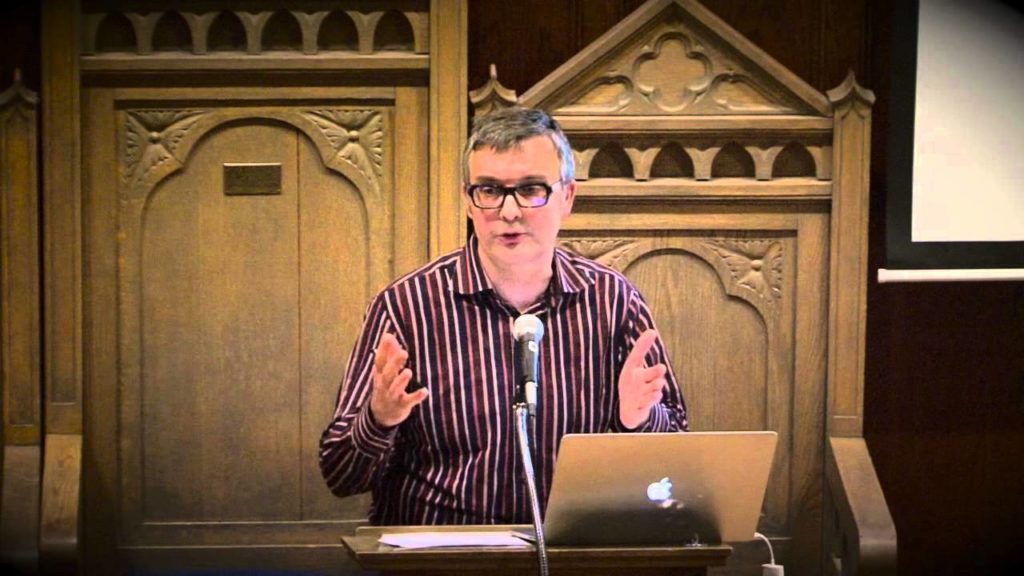راقب عمليات القتل الناعمة..!!
بشرية مريضة أصلاً فكيف اليوم مع “يأس وتخويف” مُعتمد من قبل “كوفيد”!!
كل شخص مُمكن يكون مُحبط.. أو ضيّع (الآزهايمر) هناك تسهيل لقتله وتحفيز عَ الإنتحار..
انتقادات بسبب القتل لرجل يبلغ من العمر 61 عامًا يتمتع بصحة جسدية ولكنه مكتئب..
الد. Naheed Dosani يقولها.. لعدم إجبار الأشخاص بالدخول في مواقف ضعف ليعتمدوا “MAiD” للهروب من هذه المواقف الضعيفة..
هولندية تبلغ من العمر 74 عامًا مصابة بالخرف تم إعطاؤها خلسةً مهدئًا في قهوتها وأمسك بها أفراد الأسرة بينما أعطاها الطبيب حقنة مميتة..

انتقد نشطاء حقوق المعاقين مشروع القانون C-7 ، ووصفوه بأنه تمييزي لأنه يعرض الموت بمساعدة الحكومة للمعاقين..
وجدت طبيبة كندية نفسها فجأة مريضة في جناح وحدة إعادة التأهيل بعد حادث أصابها بالشلل من الخصر إلى الأسفل في أكتوبر 2020. الآن ، قالت إنها قلقة بشأن التوسعات الأخيرة لبرنامج القتل الرحيم القانوني في كندا وكيف يؤثر على الأشخاص ، ولا سيما ذوي الإعاقة.
أخبرت كورينا إامبين (Corrina Iampen)، طبيبة عامة من كيلونا ، من جامعة British Columbia ، موقع LifeSiteNews أنه بعد أسابيع قليلة من حادثها الذي أصيب بالشلل في الخريف الماضي ، سألها طبيب في المستشفى عما إذا كانت ترغب في وضع أمر “عدم الإنعاش (DNR)” على علاجها الطبي…
MAiD – أو المساعدة الطبية في الموت – هو التعبير الكندي الملطف عن الانتحار القانوني بمساعدة الطبيب عن طريق الحقن. مشروع القانون C-7 ، الذي من شأنه أن يوسع المعايير المقبولة للقتل الرحيم ليشمل الأشخاص الذين لا يموتون بالفعل ولكن تم تشخيص إصابتهم بحالة لا تهدد الحياة بما في ذلك الإعاقة الدائمة ، اجتاز بالفعل القراءة الأولى في المجلس. تعديلات للسماح بالقتل الرحيم للأشخاص المصابين بأمراض عقلية و “التوجيهات المسبقة” – للقتل الرحيم للأشخاص إذا أصبحوا غير أكفاء في المستقبل ، كما هو الحال في خرف ألزهايمر – أقرها مجلس الشيوخ هذا الأسبوع.
على الرغم من أنها لا تعارض MAiD في المفهوم ، إلا أن Iampen قلقة بشأن كيفية القيام بذلك في الممارسة العملية. قال الطبيب البالغ من العمر 55 عامًا: “يجب أن يكون العرض التقديمي دقيقًا للغاية ، لأنه لا يؤثر عليك فقط كشخص ، ولكنه يؤثر أيضًا على الكثير من الأشخاص من حولك”.
قال Iampen إن الطبيبة التي سألتها عما إذا كانت تريد MAiD عندما كانت في إعادة التأهيل كانت بشكل عام “لطيفة جدًا” ، لكن “في ذلك الوقت ، فوجئت بذلك حقًا. اعتقدت أنه كان بعيدًا جدًا “.
وأضافت: “كان التوقيت سيئًا حقًا” ، و “غير مناسب بمعنى أنه في الواقع ، هناك أوقات تكافح فيها حقًا وهذا شيء يخطر ببالك ، الفكرة – كنت تفضل الموت في الحادث – بالطبع يفعل “.
قال يامبين إن التعافي كان “صعبًا للغاية في بعض الأحيان”. “أنت لست في حالة صدمة فقط ، بعض الناس يعانون من الكثير من آلام الأعصاب. أنا واحد منهم. من الصعب جدًا وصفها ولكنها موجودة. هناك فقدان للحركة والاستقلالية وفقدان السيطرة..”.
بالنسبة للشباب ، قد تكون الأسئلة حول MAiD في مثل هذا الوقت الضعيف مغرية للغاية ، كما قالت لدكتورة Iampen ، ولكن “حتى الأشخاص في عمري والذين ليس لديهم دعم جيد من حولهم سيجدون صعوبة بالغة”.
الطبيبة Iampen التي تحولت إلى مريض/ مُصابة، بدأت ترى كيفية معاملة الأشخاص المعاقين بطريقة غير محترمة في النظام الصحي. بينما كانت تسير بنفسها في القاعات في مركز جي إف لإعادة التأهيل القوي ، رأت طاقم التمريض يخلع ملابس النساء المعاقات دون إغلاق الباب لمنحهن الخصوصية، على سبيل المثال. قالت: “إنك تعتمد على الموظفين لمساعدتك على التكيف مع هذه الحياة الجديدة” و “بعضها كان رائعًا حقًا” ، لكن البعض الآخر قد يجعلها تشعر “بأنها عبء”.
قالت Iampen إنها طلبت التحدث إلى مديرة عيادة إعادة التأهيل قبل مغادرتها ، لتعرض رؤيتها حول “كيفية مساعدة الآخرين” ولكن المدير لم يأت لرؤيتها.
كان عدم الاهتمام بتحسين نوعية الحياة للأشخاص قبل تقديم MAiD موضوعًا متكررًا في إطار برنامج كندا للقتل بمساعدة الطبيب. في عام 2017 ، روجر فولي ، الذي كان يبلغ من العمر 42 عامًا ويعاني من حالة عصبية غير قابلة للشفاء ، تم تسجيله سراً بواسطة طاقم عمل في لندن ، أونتاريو ، المستشفى الذي كان يسكن فيه لأكثر من عامين ، حيث قدم له خدمات MAiD مرارًا وتكرارًا بينما كانت طلبات فولي للرعاية الذاتية موجهة رفض.
في عام 2019 ، تعرض الأطباء لانتقادات بسبب القتل الرحيم لرجل يبلغ من العمر 61 عامًا في “British Columbia” يتمتع بصحة جسدية ولكنه مكتئب. قال أفراد عائلته إنه لم يكن سليم العقل وتوسلوا إليه ألا يخوض في هذا الإجراء.
أدلى طبيب كندي آخر ، نهيد دوساني Naheed Dosani ، أخصائي الرعاية التلطيفية التابع لجامعة تورنتو والذي يعتني بالمشردين من وحدة متنقلة ، بشهادته أمام مجلس الشيوخ في 1 فبراير ، قائلاً إن الوصول إلى MAiD أسهل بكثير من الحصول على المساعدة الفعلية لتحسين حياة الناس.

قال دوساني: “أعمل في الخنادق ، على الخطوط الأمامية لأزمة التشرد، وأزمة الموت بجرعات زائدة من الأفيون والآن أزمة جائحة كوفيد -19”. “أعمل في عالم يمكنني فيه الوصول على MAiD بسرعة في غضون أسبوعين بطريقة فعالة..!!
وأضاف “أجد هذا مؤلمًا من الناحية الأخلاقية”. “أريد أن أكون واضحًا: لقد رأيت أشخاصًا تابعوا MAiD لأنهم تعرضوا للتهميش.”
وصف دوساني أحد المرضى ، وهو رجل في الخمسينيات من عمره ، يُدعى “بوب” مصابًا بالتصلب المتعدد والجروح التي عولج ألمها. اختار الموت على يد الطبيب الانتحار لأن “مرضه الذي طال أمده ومضاعفاته أدى إلى اضطراب تعاطي الكحوليات مما أدى إلى فقدانه السكن مما أدى إلى فقدانه لعائلته وفي النهاية وحيد”.
ووصف أيضًا أنه شهد السيناريو المعاكس ، حيث أدت مساعدة ظروف الشخص إلى تغيير رأيه بشأن رغبته في الموت. كانت “ماري” في الثلاثين من عمرها من متعاطي المخدرات في الشوارع وقالت إنها تريد MAiD ولكن “بعد معالجة آلامها العاطفية والجسدية” والحصول على سكنها ، “غيرت رأيها. لم تكن تريد أن تموت عن طريق خادمة ، أرادت أن تعيش لأن نوعية حياتها كانت أفضل. “
“أخشى أن يكون لمشروع القانون C-7 تأثير غير متناسب على المعاقين من الطبقة العاملة ، والأشخاص الذين يعانون من التشرد ، والفقر والتهميش ، والأشخاص الذين لا يستطيعون دعم احتياجاتهم الأساسية مثل الطعام والمأوى والأدوية ،” قال دوساني أمام جلسات مجلس الشيوخ بشأن الفاتورة.
قال: “مع وجود 35.000 كندي يعانون من التشرد كل ليلة ، أتوقع نفس الطاقة التي تم وضعها في تمرير MAiD إلى عالمنا وبلدنا ، حيث سنضع نفس الطاقة في الإسكان… الحد من الضرر ، وتنفيذ الدخل الأساسي والصيدلة”.
واختتم دوساني قائلاً: “إذا كنت تسهل على الأشخاص الحصول على MAiD ، فيجب عليك أيضًا ضمان عدم إجبار الأشخاص على الدخول في مواقف ضعف حيث يشعرون أنهم بحاجة إلى الوصول إلى MAiD للهروب من هذه المواقف الضعيفة“.
التوسعات السريعة لمعايير القتل الرحيم في كندا جعلت النقاد يقارنون البلد ببلجيكا وهولندا حيث توسع القتل الرحيم بسرعة للسماح بقتل الأطفال ، والأشخاص المصابين بالتوحد وطنين الأذن المزمن ، والصمم ، والاكتئاب المرتبط بنوع الجنس. في عام 2018 ، تم الكشف عن تفاصيل الحالة الهولندية لامرأة تبلغ من العمر 74 عامًا مصابة بالخرف تم إعطاؤها خلسةً مهدئًا في قهوتها وأمسك بها أفراد الأسرة بينما أعطاها الطبيب حقنة مميتة.
انتقد نشطاء حقوق الإعاقة ، بما في ذلك اثنين من مراقبين الأمم المتحدة المنفصلين ، مشروع القانون C-7 ، واصفين إياه بالتمييز و “القادر” لأنه يعرض الموت بمساعدة الحكومة للمعاقين ولكن ليس للأشخاص ذوي الإعاقة. يشير مصطلح القدرة على التمييز والتحيز الاجتماعي ضد الأشخاص ذوي الإعاقة…
قال ترودو ليمنز “Lemmens”، عضو مجلس الخبراء التابع لمجلس الأكاديميات الكندية حول المساعدة الطبية في الموت ، لـ LifeSiteNews إنه يشعر بالقلق أكثر بشأن الكيفية التي ستجعل بها تعديلات MAiD الانتحار “معيارًا للرعاية”.
قال Lemmens ، أستاذ قانون وسياسة الصحة في جامعة تورنتو: “لا توجد دولة أخرى في العالم قامت بترقية MAiD كخط علاج طبي من الدرجة الأولى عند الطلب ، كما يفعل C-7 غير المعدل”.
في ورقة Policy Review التي شارك في تأليفها ، أشار Lemmens إلى أن الطب عادةً يحتفظ بخيارات العلاج الأكثر قسوة إلى النهاية. لا يقترح الطبيب عادة إجراء جراحة لالتهاب المفاصل دون محاولة إجراء تعديلات على نمط الحياة وتناول الأدوية. بعد إزالته من سياق “نهاية العمر” وضمن قراءة المحكمة العليا للحق في رفض أي علاج ، يصبح MAiD خيارًا “علاجًا” قياسيًا للرعاية يجب على الأطباء تقديمه في البداية و سيكون للمرضى الحق في أخذها.
محاولات حماية المعوقين من الضغط للخضوع ل MAiD هُزمت بشكل سليم. صوت أعضاء مجلس الشيوخ 66-18 (مع امتناع واحد) ضد تعديل ، اقترحه زعيم مجلس الشيوخ المحافظ دون بليت ، والذي كان من شأنه أن يجرم الطاقم الطبي إثارة مسألة الموت بمساعدة المريض ما لم يطلب المريض معلومات حول MAiD أولاً .
وقال ليمنس إنه يعول على مجلس النواب لسحب تعديلات مجلس الشيوخ التي تم تمريرها في أقل من أسبوعين على أساس الحجج العاطفية بدلاً من النظر في القضايا المعقدة التي ستظهر. السناتور. قالت باميلا والين ، وهي عضوة في مجموعة أعضاء مجلس الشيوخ الكندية التي اقترحت التعديل ، إن لديها “تاريخًا من الخرف في عائلتي” وأن القانون يحاصر الكنديين حاليًا في “يانصيب التشخيص الضار” بحيث يمكن لمن تم تشخيص إصابتهم بسرطان عضال حقنة مميتة ، لكن لا يمكن للمصابين بالخرف ، لأنهم فقدوا الكفاءة.
وأضاف ليمنس: “هذه ليست فاتورة يجب أن نقدمها خلال الجائحة عندما يعاني الكثير من الناس من الوحدة والمشاكل الاقتصادية”.
دعا تحالف منع القتل الرحيم الكنديين إلى الاتصال بأعضاء البرلمان وأطلق التماسًا لرفض مشروع القانون C-7 الذي حصل على أكثر من 52000 توقيع حتى الآن.
المصدر: https://www.lifesitenews.com
Doctor-turned-patient realizes how disabled people are nudged to be euthanized
By Celeste McGovern – Disability rights activists have criticized Bill C-7, calling it discriminatory for offering government-assisted death to the disabled but not to people without disabilities.
A Canadian doctor suddenly found herself a patient on the ward of a rehabilitation unit after an accident left her paralyzed from the waist down this past October. Now, she said she is worried about the latest expansions to Canada’s legalized euthanasia program and how they will affect people, in particular those with disabilities.
Corrina Iampen, a GP from Kelowna, British Columbia, told LifeSiteNews that just weeks after her paralyzing accident last fall, a doctor in hospital asked her if she would like a “Do Not Resuscitate (DNR) order” put on her medical chart. Iampen said she did not want extra medical measures taken to keep her alive but at the time, those treatments were necessary anyway. She said yes to the “DNR.” The treating doctor then said, “Well, do you want me to just call MAiD?”
MAiD — or Medical Assistance in Dying — is the Canadian euphemism for legal doctor-assisted suicide by injection. Bill C-7, which would expand the accepted criteria for euthanasia to people who are not actually dying but diagnosed with a non-life threatening condition including permanent disability, has already passed first reading in the House. Amendments to allow for euthanasia of people with mental illness and for “advance directives” — for people to be euthanized should they become incompetent in the future, as in Alzheimer’s dementia — passed in the Senate this week.
Although she is not opposed to MAiD in concept, Iampen is worried about how it will be done in practice. “The presentation has to be very delicate, because it doesn’t just impact you as a person, but it also impacts so many people around you,” the 55-year-old doctor said.
Iampen said the doctor who questioned if she wanted MAiD when she was in rehab was generally “very nice,” but “at the time, I was just really surprised by it. I thought it was very aloof.”
The “timing was really poor,” she added, and “inappropriate in the sense that in reality, there are times that you are really struggling and it is something that crosses your mind, the thought — you’d rather have died in the accident — of course it does.”
Recovery has been “very difficult at times,” Iampen said. “You’re not just in shock, some people go through quite a lot of neuropathic pain. I’m one of them. It’s very difficult to describe but its’ there. There’s the loss of mobility and independence and the loss of bladder and bowel control and a whole re-identification process that you’re going through.”
For young people, questions about MAiD at such a vulnerable time might be overwhelmingly tempting, Iampen said, but “even people that are my age that don’t have good supports around them would find it very difficult.”
As a doctor-turned-patient, Iampen began to see how disabled people are treated disrespectfully in the health system. As she was wheeling herself down the halls at the GF Strong Rehabilitation Centre, she saw nursing staff undressing disabled women without closing the door to give them privacy, for example. “You’re relying on staff to help you adjust to this new life” and “some were really amazing,” she said, but others could make her feel “like a burden.”
Iampen said she asked to speak to the director of the rehabilitation clinic before she left, to offer her insights on “how to help others” but the director never came to see her.
The lack of interest in improving quality of life for people before offering MAiD has been a recurring theme under Canada’s program of doctor-assisted killing. In 2017, Roger Foley, then 42 years old and suffering from an incurable neurological condition secretly recorded staff at the London, Ontario, hospital he was housed at for more than two years repeatedly offering him MAiD services while Foley’s requests for self-directed care were denied.
In 2019, doctors were criticized for euthanizing a physically healthy but depressed 61-year-old British Columbia man. His family members said he was not of sound mind and begged him not to go through with the procedure.
Another Canadian doctor, Naheed Dosani, a University of Toronto-affiliated palliative care specialist who cares for homeless people from a mobile unit, testified before the senate on February 1, saying that MAiD is far easier to access than actual help to improve people’s lives. “I work in the trenches, on the frontlines of the homelessness crisis, the opioid overdose death crisis and now the Covid-19 pandemic crisis,” Dosani said. “I work in a world where I can successfully arrange for MAiD in two weeks in an organized and efficient fashion, but also a world where it takes years to get the people I care for into housing, months to get people income support and weeks to get them mental health and harm reduction support, if we’re lucky.”
“I find this morally distressing,” he added. “I want to be clear: I’ve seen people who’ve pursued MAiD because they’ve experienced marginalization.”
Dosani described one patient, a man in his 50s he called “Bob” with multiple sclerosis and wounds whose pain was treated. He opted to die by doctor-assisted suicide because “his protracted disease and complications of it led to an alcohol use disorder which led to him lose housing which led to him losing his family and ultimately being alone.”
He also described having witnessed the opposite scenario, where helping a person’s circumstances changed their mind about wanting to die. “Mary” was a 30-something drug user on the streets who said she wanted MAiD but “after addressing her emotional and physical pain” and getting her housing, “she changed her mind. She didn’t want to die via MAID, she wanted to live because she had a better quality of life. “
“I worry that Bill C-7 will have a disproportionate impact on working class disabled people, people experiencing homelessness, poverty and marginalization, people who can’t support their basic needs like food and shelter and medication,” Dosani told the senate hearings on the bill.
“With 35,000 Canadians experiencing homelessness each night, I expect the same energy that’s been put into passing MAiD into our world and country, that we’ll put the same energy into housing … harm reduction, implementing basic income and pharmacare,” he said.
“If you are making it easier for people to get MAiD you have also an obligation to ensure that people are not forced into vulnerable situations where they feel they need to access MAiD to escape these vulnerable situations,” Dosani concluded.
The rapid expansions to Canada’s euthanasia criteria have critics comparing the country to Belgium and the Netherlands where euthanasia expanded rapidly to allow the killing of children, people with autism and chronic tinnitus, deafness and gender dysphoria related depression. In 2018, details of the Dutch case of a 74-year-old woman with dementia who was surreptitiously given a sedative in her coffee and held down by family members while a doctor gave her a lethal injection came to light.
Disability rights activists, including two separate United Nations watchdogs, have criticized Bill C-7, calling it discriminatory and “ableist” for offering government-assisted death to the disabled but not to people without disabilities. The term ableism refers to the discrimination of and social prejudice against people with disabilities.
“We’re concerned that it massively expands the range of people with disabilities, who potentially will be given access,” Gerard Quinn, the UN’s watchdog for people with disabilities, told the CBC.
“We’re concerned that there might be issues there … undermining their autonomy and their capacity to make the right decisions. I don’t mean the lack of legal capacity. What I mean is subtle pressure being brought to bear by, for example, lack of services or lack of community living options.”

Trudo Lemmens, a member of the Council of Canadian Academies Expert Panel on Medical Assistance in Dying, told LifeSiteNews that he is even more disturbed about how the new MAiD amendments will make suicide a “standard of care.”
“There is no other country in the world that has elevated MAiD as a first-line medical treatment on demand, as an unmodified Bill C-7 would do,” said Lemmens, a professor in health law and policy at the University of Toronto.
In a Policy Review paper he co-authored, Lemmens noted that ordinarily medicine reserves the most severe treatment options for last. A doctor does not usually propose surgery for arthritis without first trying lifestyle modifications and medications. Removed from the “end-of-life” context and within a Supreme Court reading of having the right to refuse any treatments, MAiD becomes a standard-of-care “treatment” option that physicians will have an obligation to provide at the outset and patients will have the right to take.
Attempts to safeguard disabled people from pressure to undergo MAiD were soundly defeated. Senators voted 66-18 (with one abstention) against an amendment, proposed by Conservative Senate leader Don Plett, which would have made it a crime for medical staff to raise the issue of assisted dying with a patient unless the patient requested information about MAiD first.
Lemmens said he is counting on the House to withdraw the Senate amendments which were passed in under two weeks on emotional arguments rather than consideration of the complex issues that will arise. Sen. Pamela Wallin, a member of the Canadian Senators Group who proposed the amendment, said that she has a “history of dementia in my family” and that the law currently traps Canadians in “a perverse diagnosis lottery” so that those diagnosed with incurable cancer can receive a lethal injection, but people with dementia cannot, because they have lost competence.
“I find the superficiality of the discussion and the analysis of some of the senators who approved this … amazing,” Lemmens said. “I hope that saner minds will prevail in the House and people will reject these amendments. If they don’t, I would find it quite disturbing because it makes a mockery of the whole parliamentary process and the serious discussion that preceded this.”
“This is not a bill we should be offering during a pandemic when so many people are suffering from loneliness and economic problems,” Lemmens added.
The Euthanasia Prevention Coalition is calling on Canadians to contact their MPs to and has launched a petition to reject Bill C-7 which has garnered more than 52,000 signatures to date.
 Agoraleaks Agoraleaks
Agoraleaks Agoraleaks







